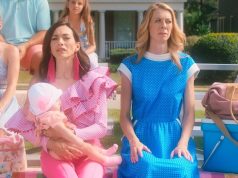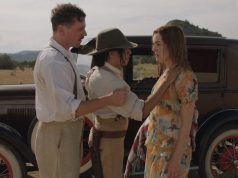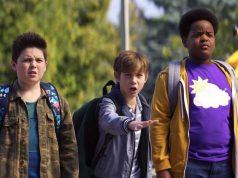A recurring theme in my relationship with movies (which began when I was underage and has often been mutually abusive) is that it doesn’t matter if a film has the same basic ideas as a hundred other movies, as long as the filmmakers find new ways to express them. A movie is only generic if it doesn’t bring ANYTHING new to the table.
That’s why I like “Archie’s Final Project” (which was titled “My Suicide” when it debuted at SXSW in 2009), a bit of nobody-understands-me teen angst directed and co-written by video-game producer David Lee Miller. Its point of view is that of a disaffected 17-year-old movie buff who plans to kill himself on camera, so the talk of teen suicide calls to mind any number of similarly themed films. But “Archie’s Final Project” breaks out of the mold with an exhilarating use of stock footage, animations, reenactments, and other audio-visual tricks, vividly reflecting the thought process of today’s media-saturated young people who are under-supervised, over-privileged, and too plugged in. I can see this replacing “Donnie Darko” as the go-to film for alienated adolescents.
It stars Gabriel Sunday (who also gets a screenplay credit, along with Eric J. Adams) as Archie Williams, a lifelong movie freak and amateur filmmaker who has decided to make his own death the subject of his media class final project. His reasons for wanting to die are mundane: his parents don’t pay attention to him — Mom (Nora Dunn) was a lawyer who resented being forced to give up her career when she got pregnant; Dad (Robert Kurcz) is wrapped up in the chicken-based fast-food franchise he owns — he’s tragically still a virgin, everyone at school thinks he’s weird for always having a camera in his hand, yada yada. Archie casually announces his intentions in class, leading to an intervention from mental health officials and a three-day stay in the loony bin (where he pesters a doctor, played by Tony Hale, with a hilarious overuse of a certain vulgar slang term), followed by regular counseling with an Indian shrink (Joe Mantegna) who, like Archie, can speak solely in movie dialogue if he wants to.
Archie has long been in love with Sierra Silver (Brooke Nevin), a perfect girl with, predictably, a dark side, which Archie learns about after his suicidal intentions become public knowledge and Sierra suddenly finds him interesting. It turns out they both share an interest in a nihilistic poet and underground filmmaker named Vargas (David Carradine). The question at the center of the film is what effect Archie’s behavior will have on the students around him, Sierra included. He mocks the trite axiom, repeated by every “concerned” person he meets, that suicide is “a permanent solution to a temporary problem” — but the fact remains that suicide is nothing to be glib about. It really is permanent, and most problems really are temporary.
Much of “Archie’s Final Project” is presented as the film Archie is making to lead up to his death. He confesses, rants, and screams to the camera, splices in images that reflect his mood, and uses his artistic skills to create rotoscoped animation. It feels very much like something that would come from the mind of a typical 17-year-old boy (i.e., horny, obsessive, and worried). Gabriel Sunday and Jordan Miller (son of the film’s director) did the editing themselves, and it’s often dazzlingly experimental without being weird or inaccessible.
Sunday’s performance is key, of course, since he appears in almost every frame, and he’s charismatic enough to pull it off, with an expressive face and sharp wit. (How come the kids in movies who are supposed to be social outcasts are always good-looking and normal? The social outcasts I knew in school were ugly and weird.) But the familiarity of the film’s ultimately life-affirming message and the too-easy resolutions are somewhat disappointing, and the movie’s second half definitely is not as stimulating as its first. Still, it’s a compelling and cathartic film, a work of thoughtfulness and creativity that’s well worth checking out.
B+ (1 hr., 46 min.; )





